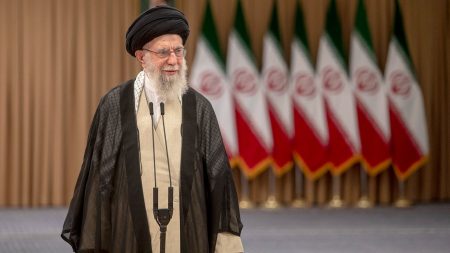Israeli Academics Targeted with Bounties by Anti-Israel Group
An alarming development has emerged in the ongoing Israel-Palestine conflict, as an organization calling itself the “Punishment for Justice Movement” has created a website offering substantial monetary rewards for violence against Israeli academics. The website, which appeared online last summer, lists specific individuals working at prestigious institutions in Israel and around the world, placing bounties of up to $100,000 on their heads. This disturbing campaign represents a dangerous escalation in tactics against civilian academic professionals and raises serious concerns about the safety of those targeted.
According to reports from The Jerusalem Post and The Times of Israel, the website not only names specific targets but publishes their personal information, including home addresses, email addresses, and phone numbers—essentially creating a roadmap for potential attackers. The academics being targeted work at respected institutions including Ben-Gurion University, Hebrew University in Jerusalem, Tel Aviv University, and the Technion in Haifa. Even professors at international institutions such as Harvard, Oxford, and the European Organization for Nuclear Research have been named. The bounty structure is particularly disturbing, offering $100,000 for killing “special targets,” $50,000 for murdering others, $20,000 for burning homes or cars, $5,000 for information about targets, and $1,000 simply for placing protest signs outside their residences.
The website, reportedly originating from the Netherlands and written in English, justifies these threats by labeling the academics as “criminals and collaborators with the occupation army” in reference to the Gaza conflict. The organization makes serious allegations, accusing these scholars of being “distributors of weapons of mass destruction to the Israeli army” and claiming they are “involved in the murder of Palestinian children.” The group asserts they had previously warned these individuals to “abandon criminal activity” and cease working with the Israel Defense Forces, but now considers them “legitimate targets” after allegedly ignoring these warnings. However, several targeted academics told journalists they never received any such warnings, and some working at nuclear research facilities noted the website creators appeared to misunderstand their work, conflating nuclear research with weapons development.
The human impact of these threats is profound, with one anonymous academic expressing fear not just for their own safety but for their family’s as well, stating that “walking around with targets on our heads puts at risk not only us, but also our families.” This professor called for government agencies to implement “more comprehensive solutions” beyond simply attempting to take down the website. The psychological toll of being targeted in this manner cannot be overstated—knowing that strangers around the world are being incentivized to track down your personal information, monitor your movements, and potentially harm you or your loved ones creates an atmosphere of constant fear and vigilance that no academic professional should have to endure while pursuing their work.
Not all targets are responding with fear, however. Oxford computer science professor Michael Bronstein took a defiant approach, telling The Jerusalem Post that he didn’t “give a damn” about the bounty on his life and dismissing those threatening him as “nutcases.” With dark humor, he expressed mock offense at the relatively low value placed on his life, saying, “I was profoundly disturbed and shocked that my head was valued so cheaply. Considering my standing in the academic community, I find anything below a seven-figure highly offensive.” He added that he found some consolation in being “in good company” among the other targeted academics. This response, while courageous, underscores the absurdity of targeting scholars whose work is dedicated to advancing knowledge rather than engaging in armed conflict.
This troubling development represents yet another example of how the Israel-Palestine conflict continues to escalate in concerning ways, with civilians increasingly caught in the crossfire. The targeting of academics—regardless of their nationality or political views—represents a dangerous attack on the principles of academic freedom and the safety of civilian institutions. While the website briefly went down on a Friday night, it was reportedly back online by Saturday, demonstrating the challenges in addressing such threats in the digital age. As government agencies and international organizations work to address this situation, the academic community worldwide watches with concern, recognizing that an attack on the freedom and safety of scholars anywhere is ultimately an attack on the pursuit of knowledge everywhere.













